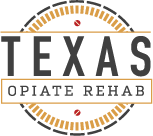Overcoming an addiction to opiates is difficult. What started out as a small habit has become a significant problem. You realize that you can’t quit using without help. A Texas addiction rehab center can be your best bet.
Spending Time Away from Home for Recovery
Choosing a residential treatment for opiate addiction is a big commitment. You move into a treatment facility for a while. This means that someone else has to deal with the responsibilities of maintaining your home. It also means putting your job or education on hold.
Who Benefits from Residential Treatment for Opiate Addiction?
Are you living in an unsafe environment? Maybe others in your home are abusing drugs or alcohol. Being around them makes it difficult to quit a substance abuse problem. Therefore, it makes sense to remove yourself from the situation by living at the rehab center.
Another benefit is for people who have relapsed. It’s easy to get frustrated when you were clean for a while but then hit a bump. You want to get well almost overnight. Because you need to work yourself back to that point in your recovery, it’s best to do so without distractions.
Besides that, inpatient rehab is the healthy choice for program participants with a long history of substance abuse. You’ve forgotten what it’s like to structure your day without drugs being the focal point. You worry about keeping up with this type of lifestyle. The safety of a Texas addiction rehab center combines with around-the-clock care to help you do so.
What Happens During Residential Treatment for Opiate Addiction?
You receive immediate attention if you need it. For newcomers, this is comforting. There’s always someone there to talk to. A hallmark of a Texas addiction rehab program is the immersion into the therapeutic environment.
Examples of interventions include:
- Dialectical behavior therapy, which focuses primarily on emotional regulation in situations you can’t change
- Cognitive behavioral therapy that emphasizes pattern recognition and change
- Acceptance and commitment therapy as a way to put actions behind goals
- Holistic pain relief that lets you work on overcoming the possible reasons for using opiates in the first place
- Experiential therapies, which build on the behavioral treatments that you undergo
Dealing with Stressors
There’s a good chance that stress played a major role in your substance abuse. Learning how to deal with stress is imperative. An inpatient setting enables you to participate in mindfulness-based stress reduction. It helps with cravings control and puts you in charge of your responses to stimuli.
In some cases, stress may also contribute to a psychiatric condition. Receiving dual diagnosis treatment is vital for healing. You tackle your opiate addiction alongside the co-occurring illness. A residential setting is ideal for this level of care.
Don’t wait to enter residential treatment for opiate addiction. The addiction won’t get better or stop by itself. Rather, it’ll probably get worse. Reach out to the caring staff at an addiction treatment center today.







